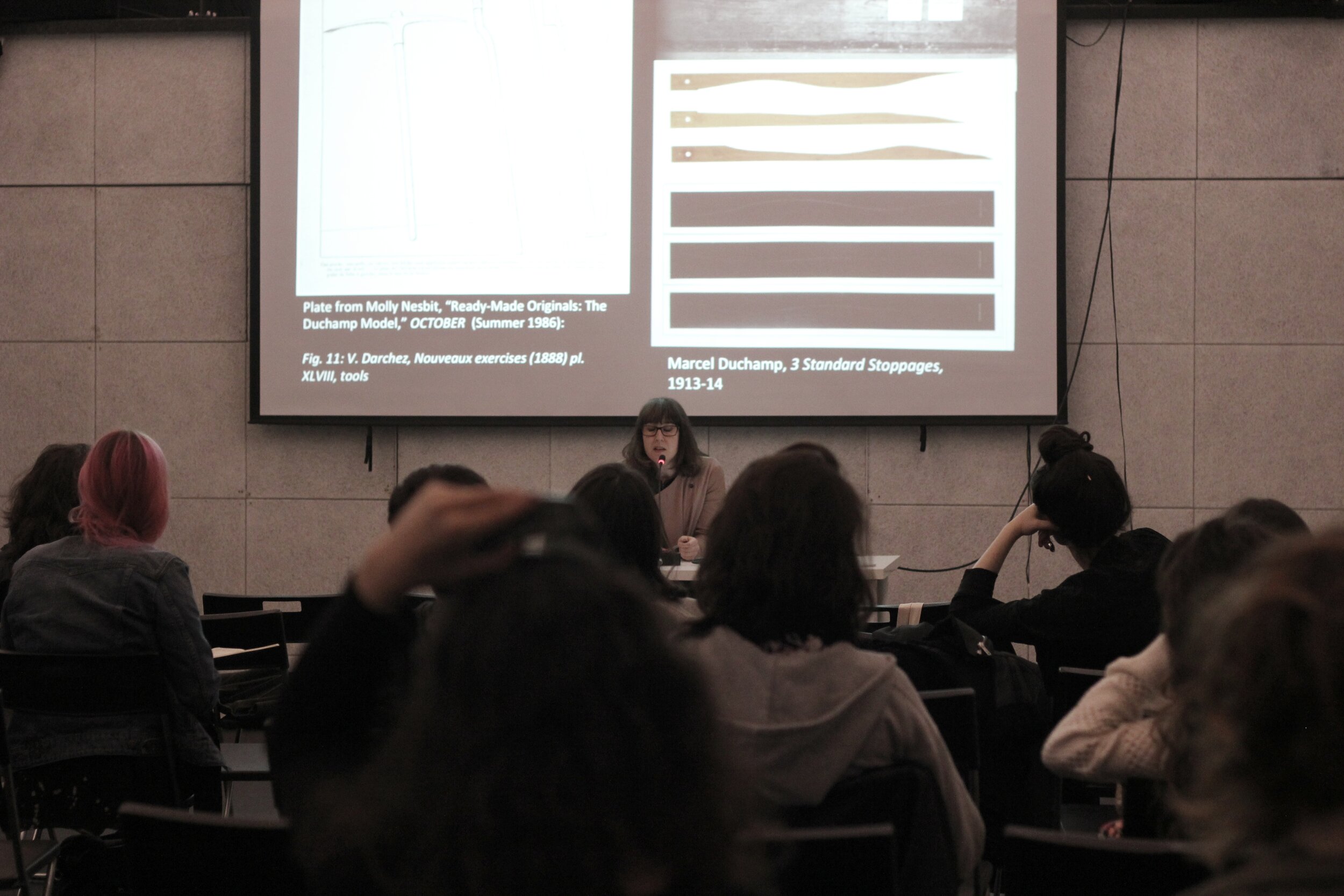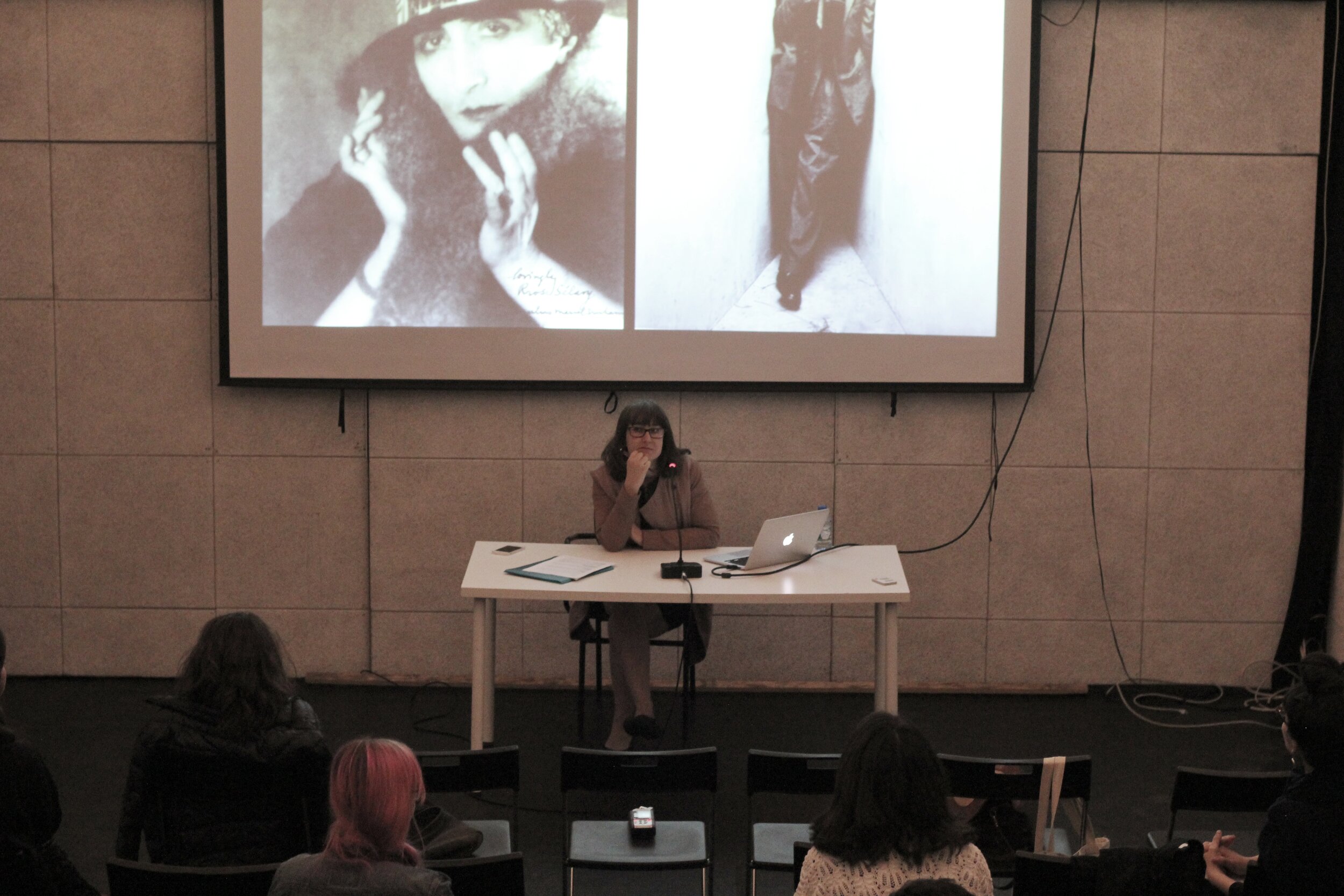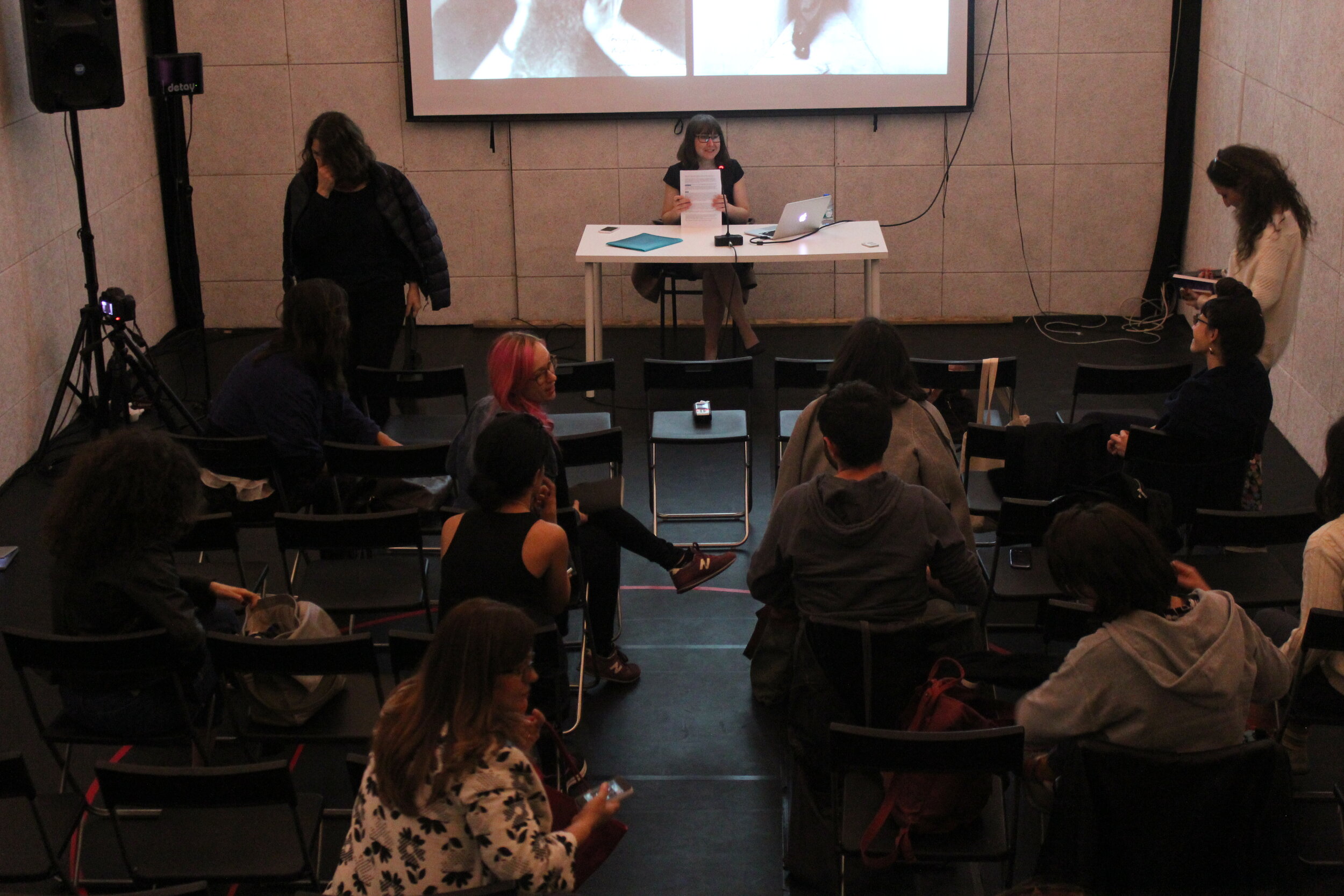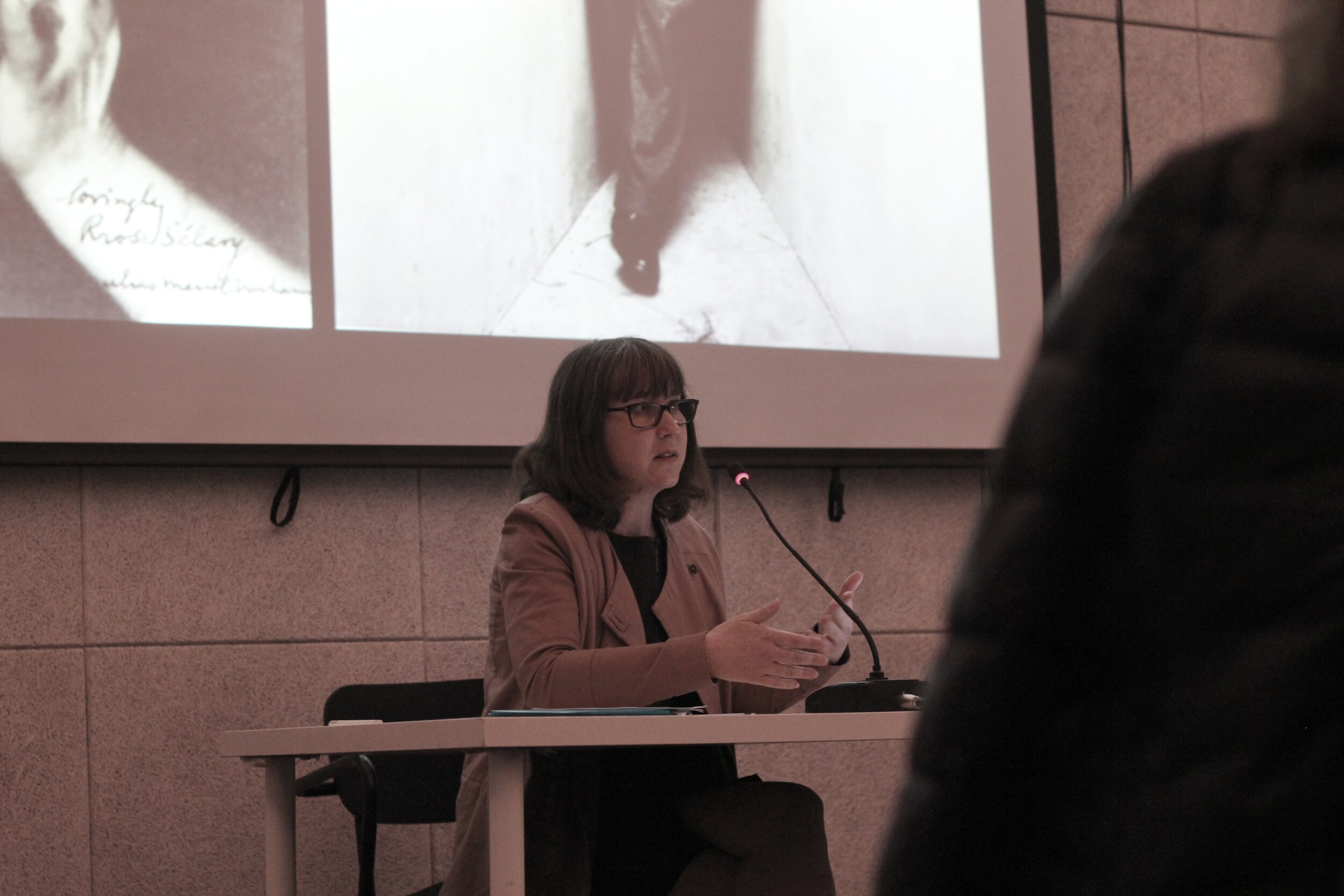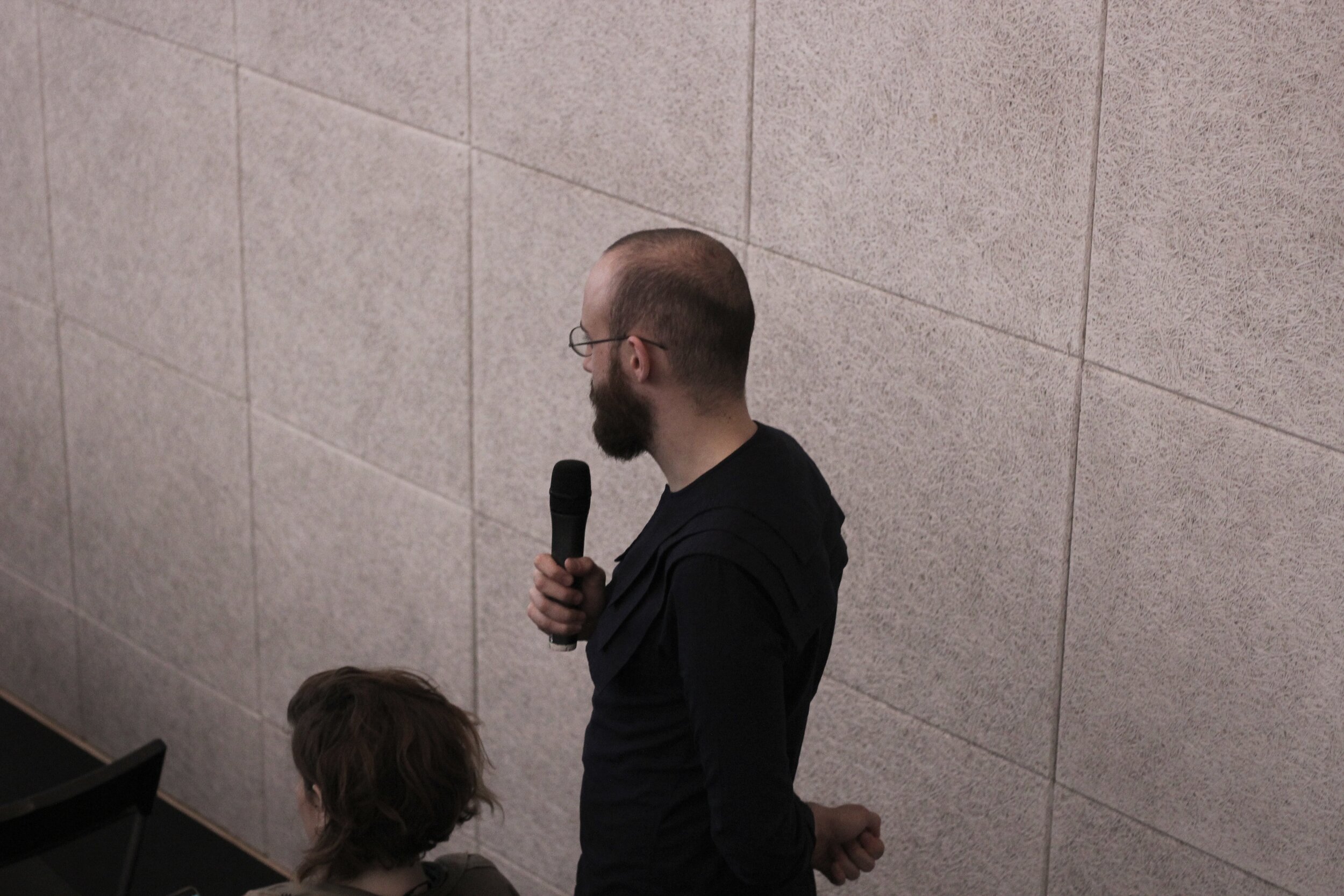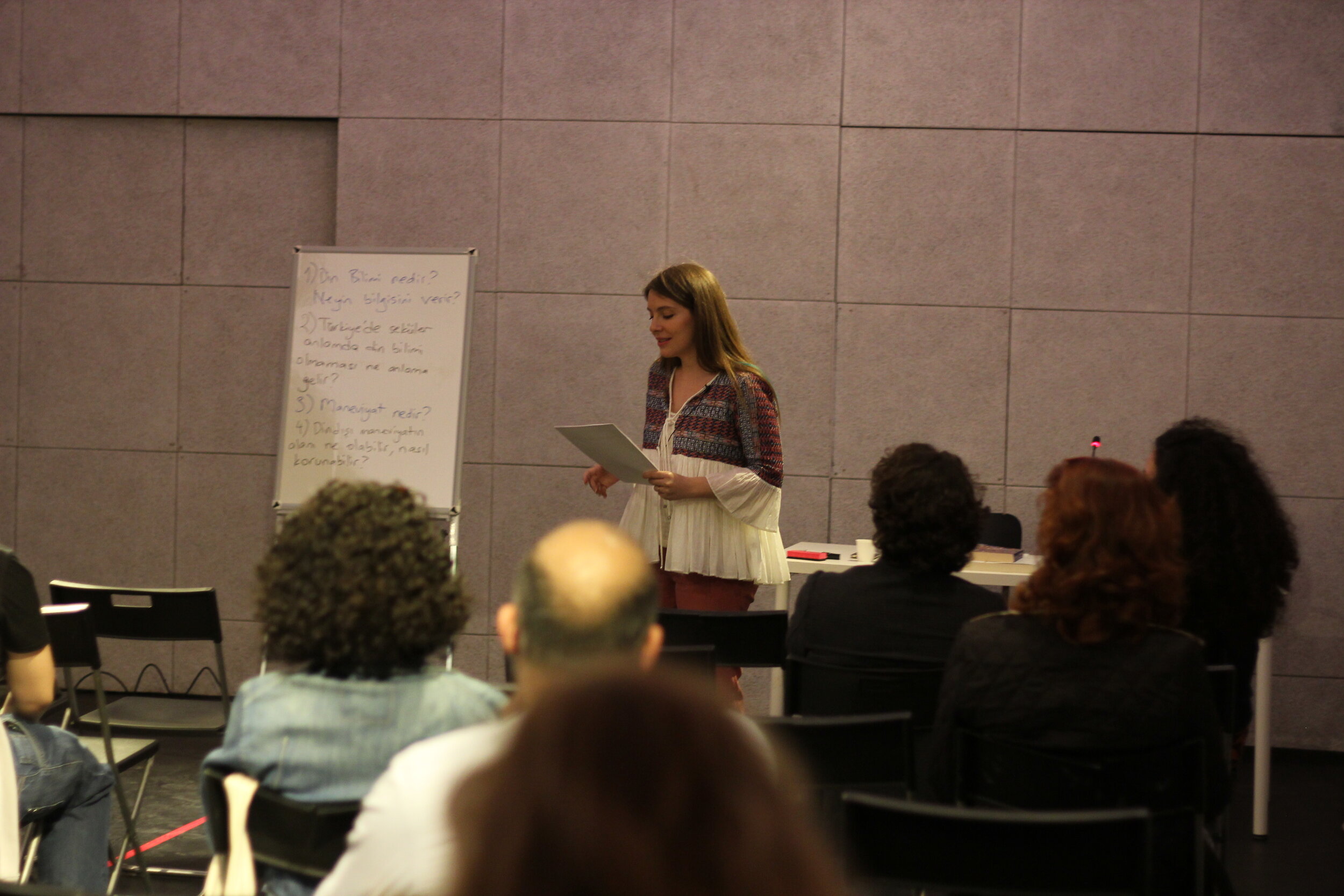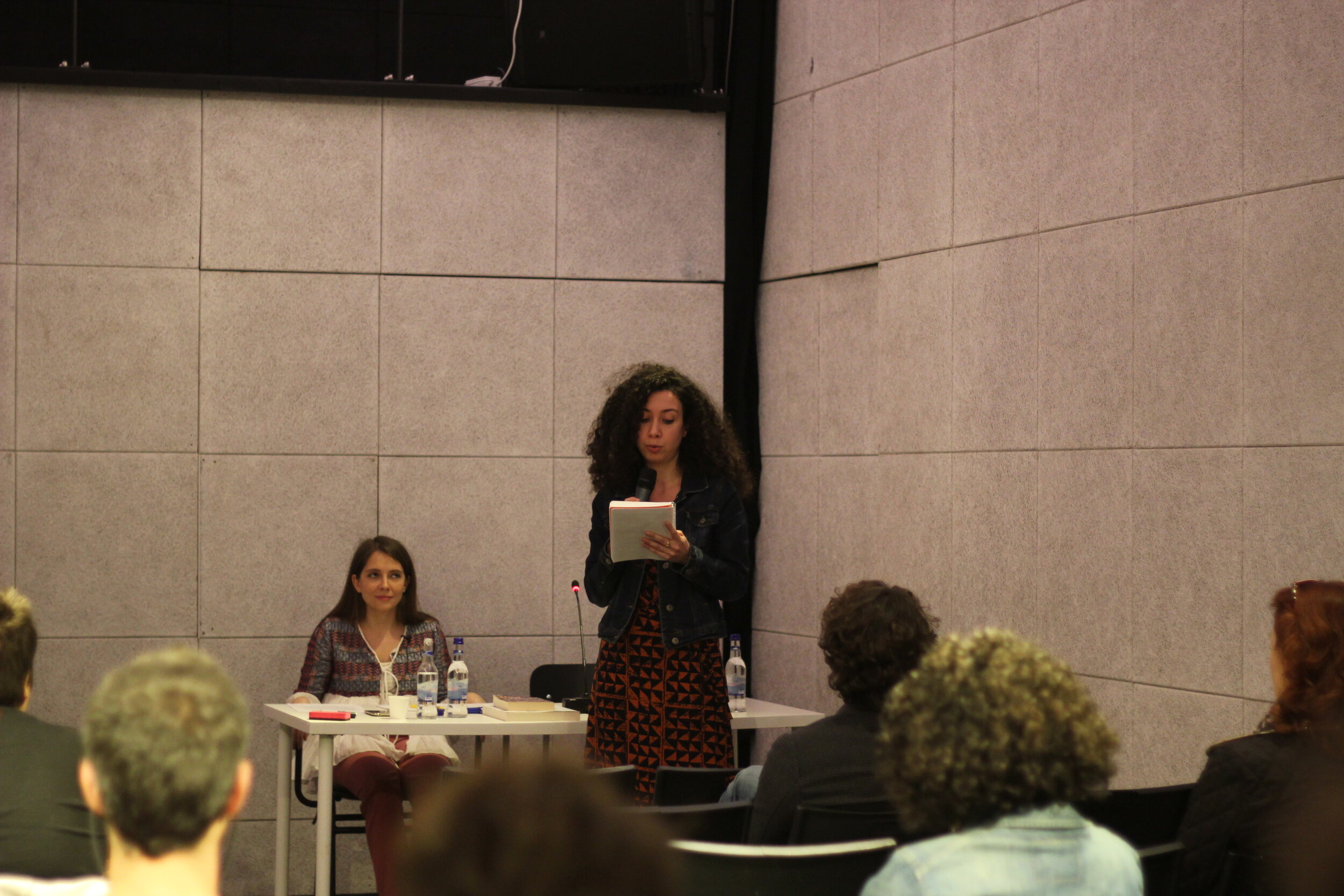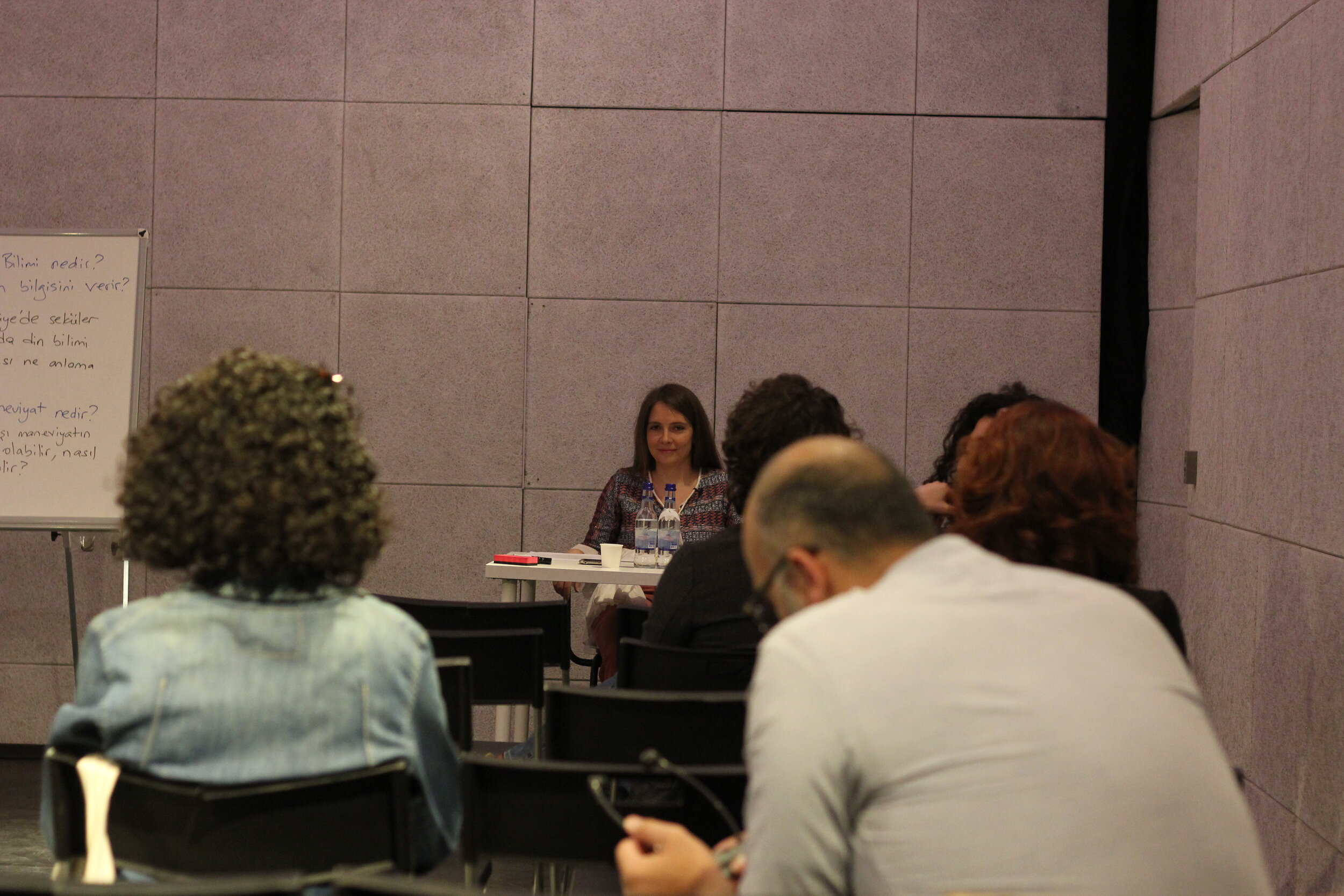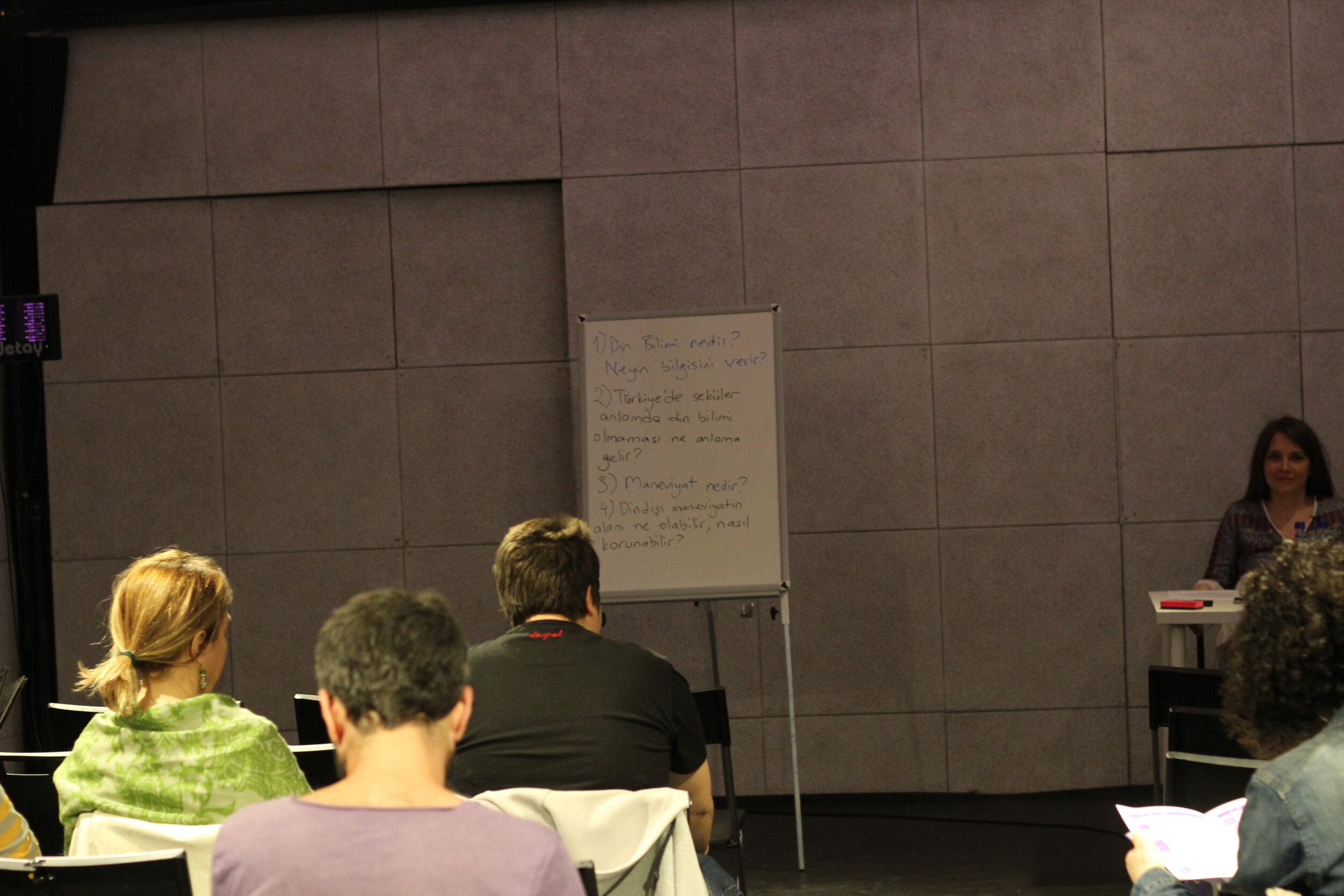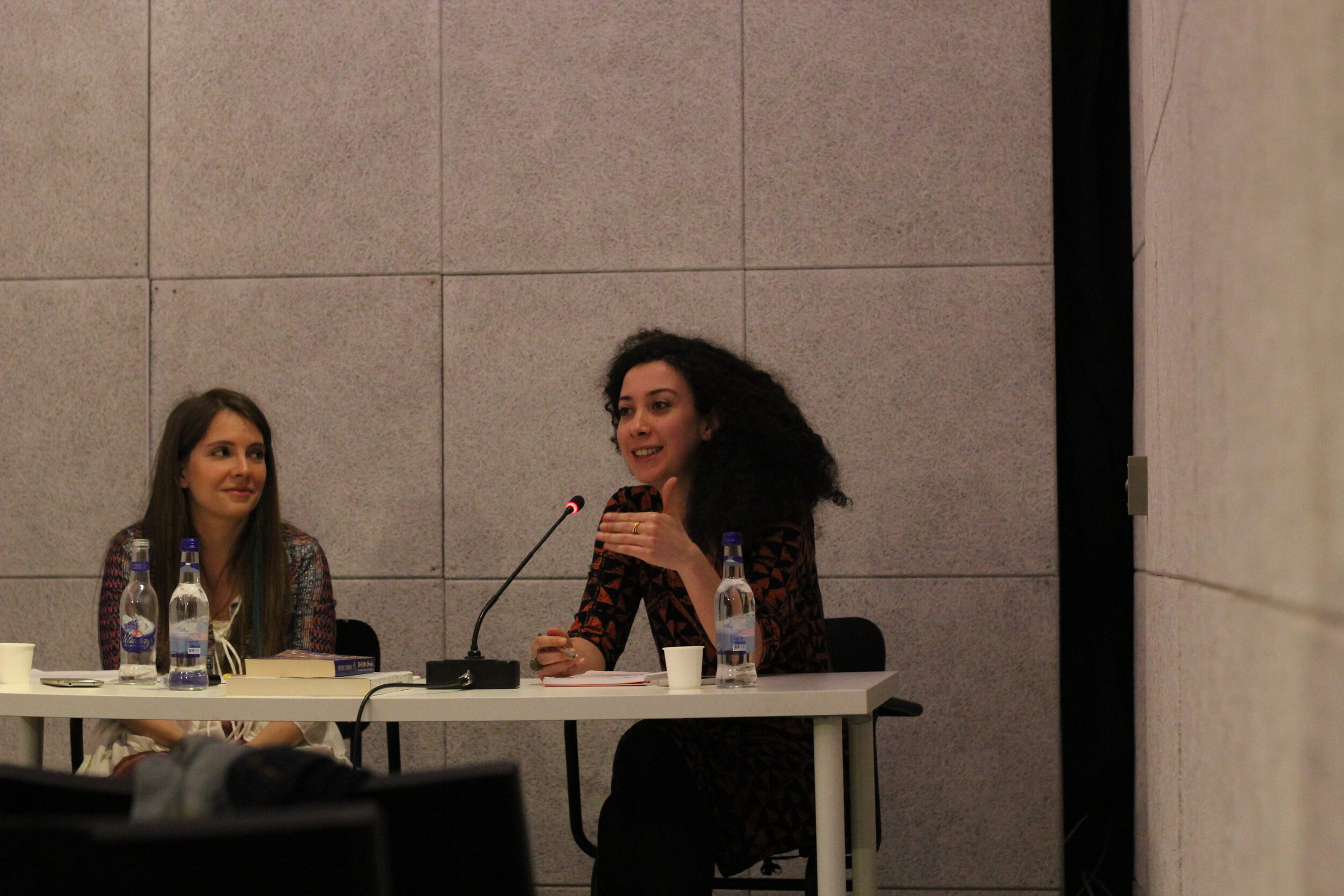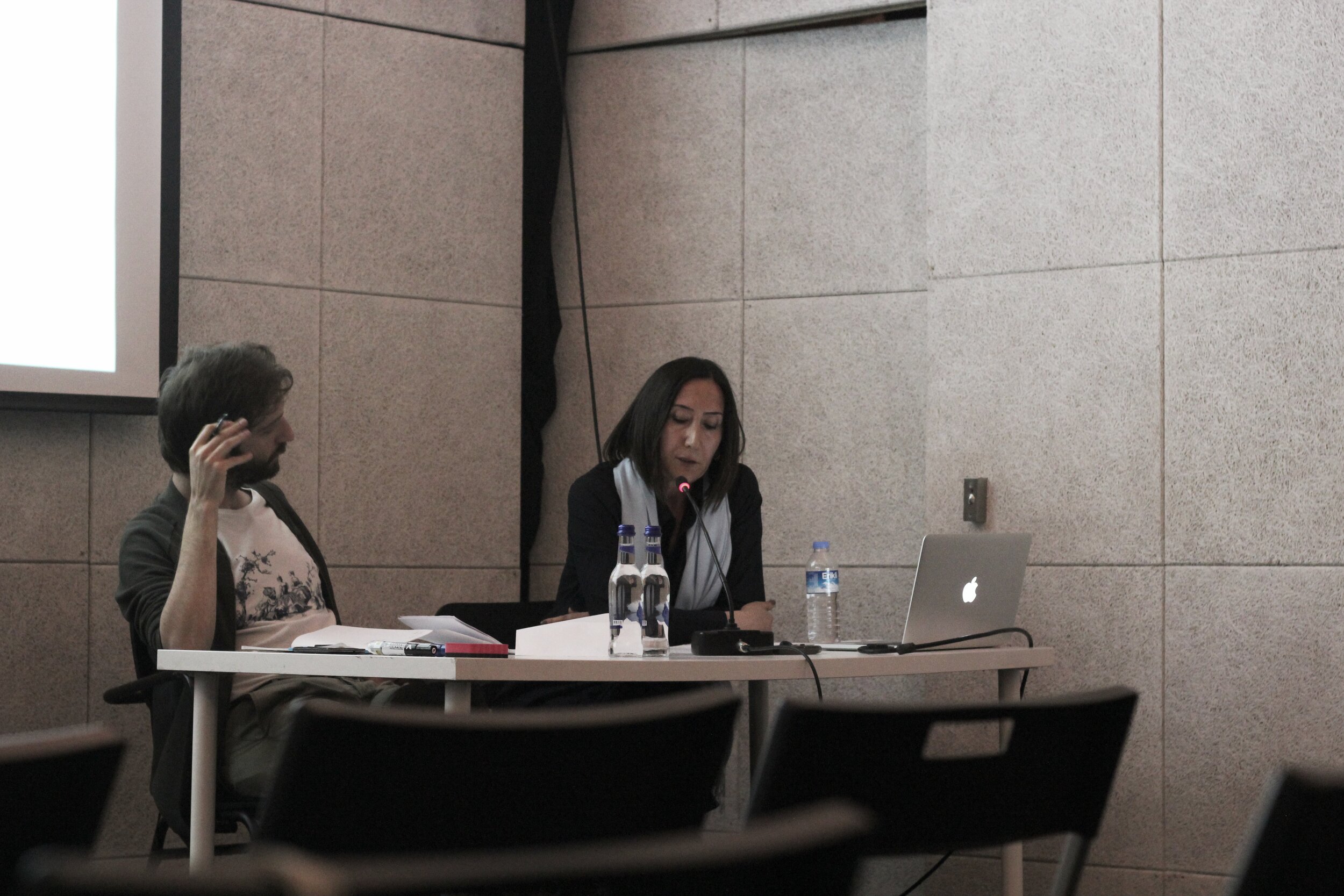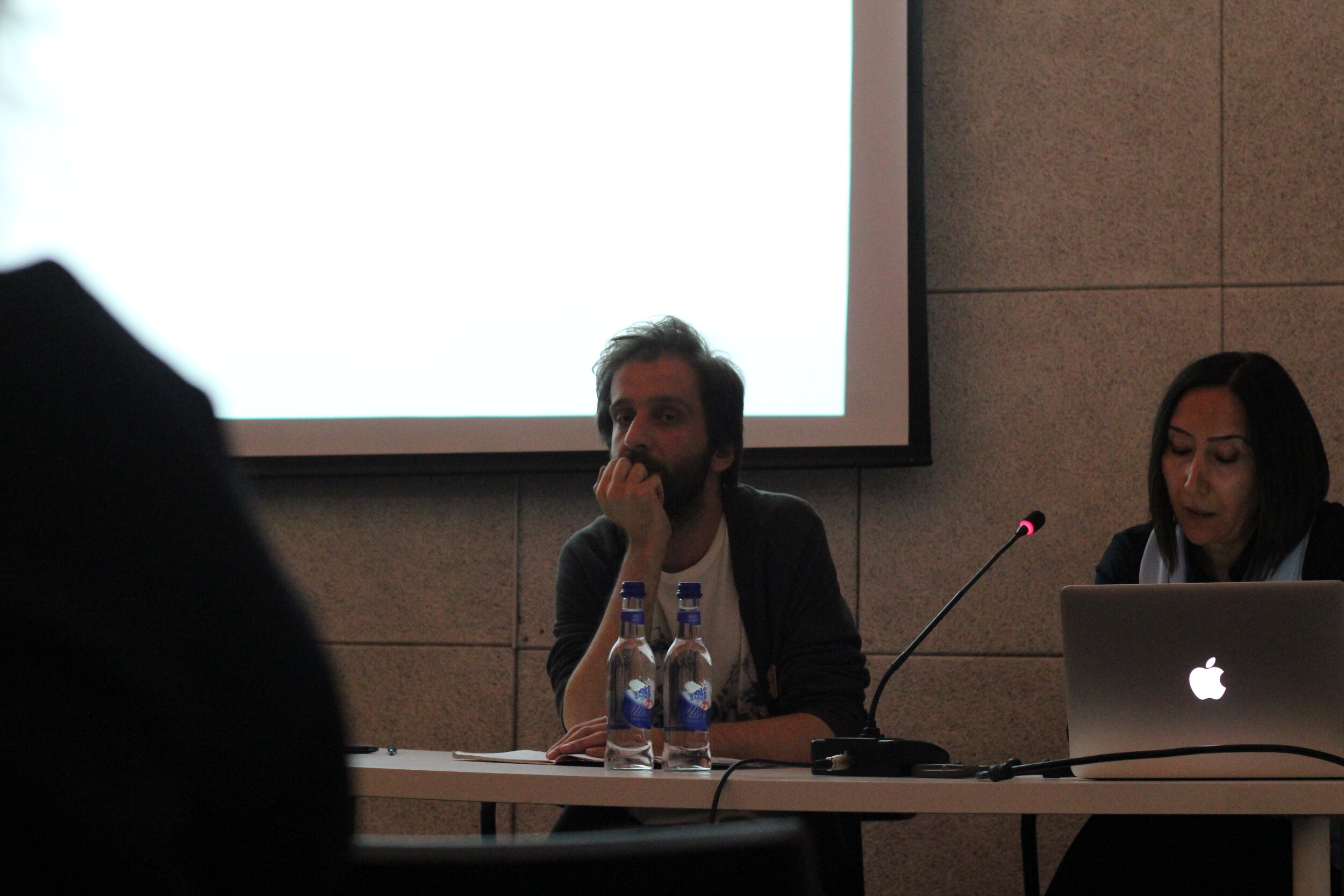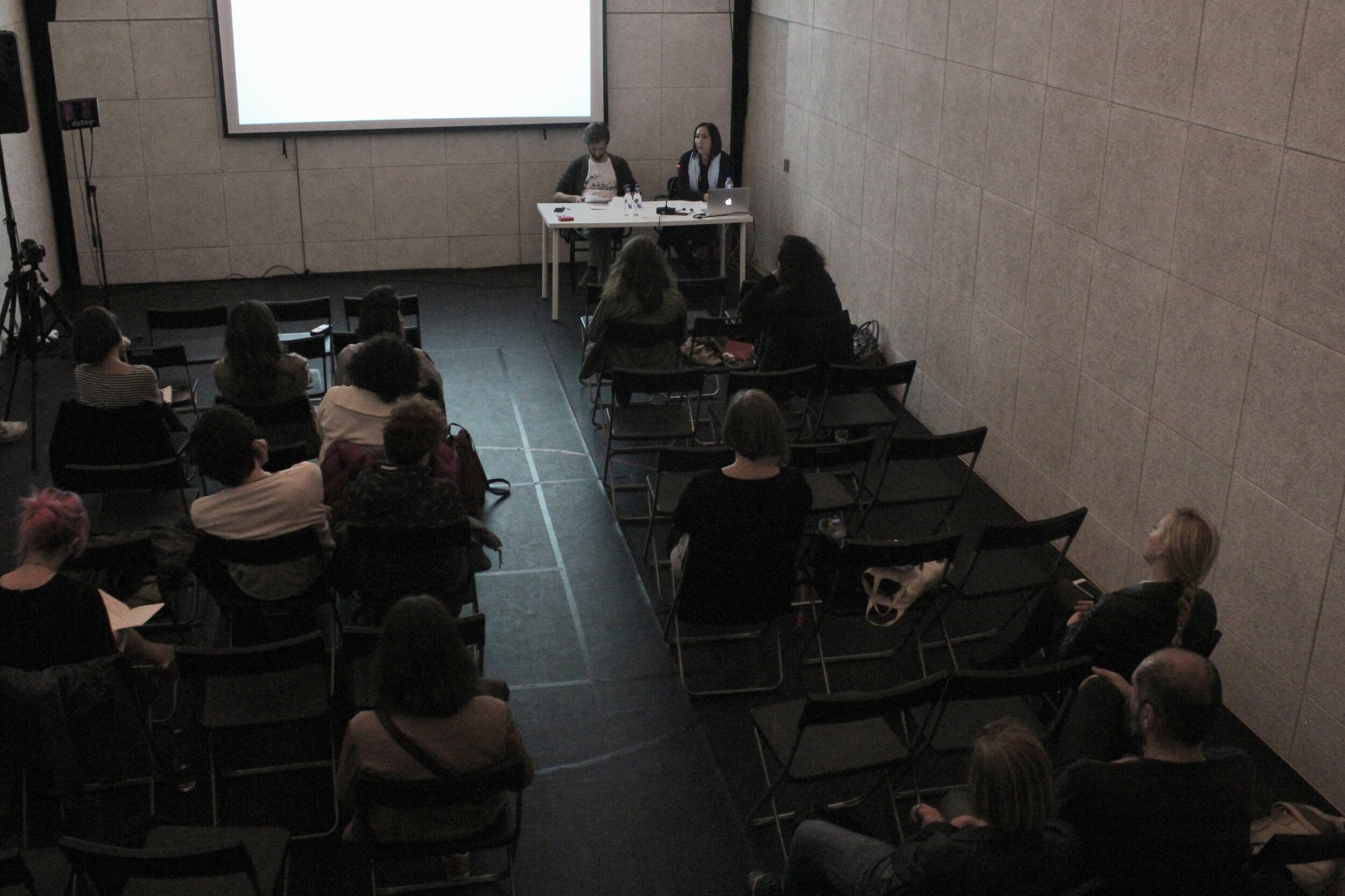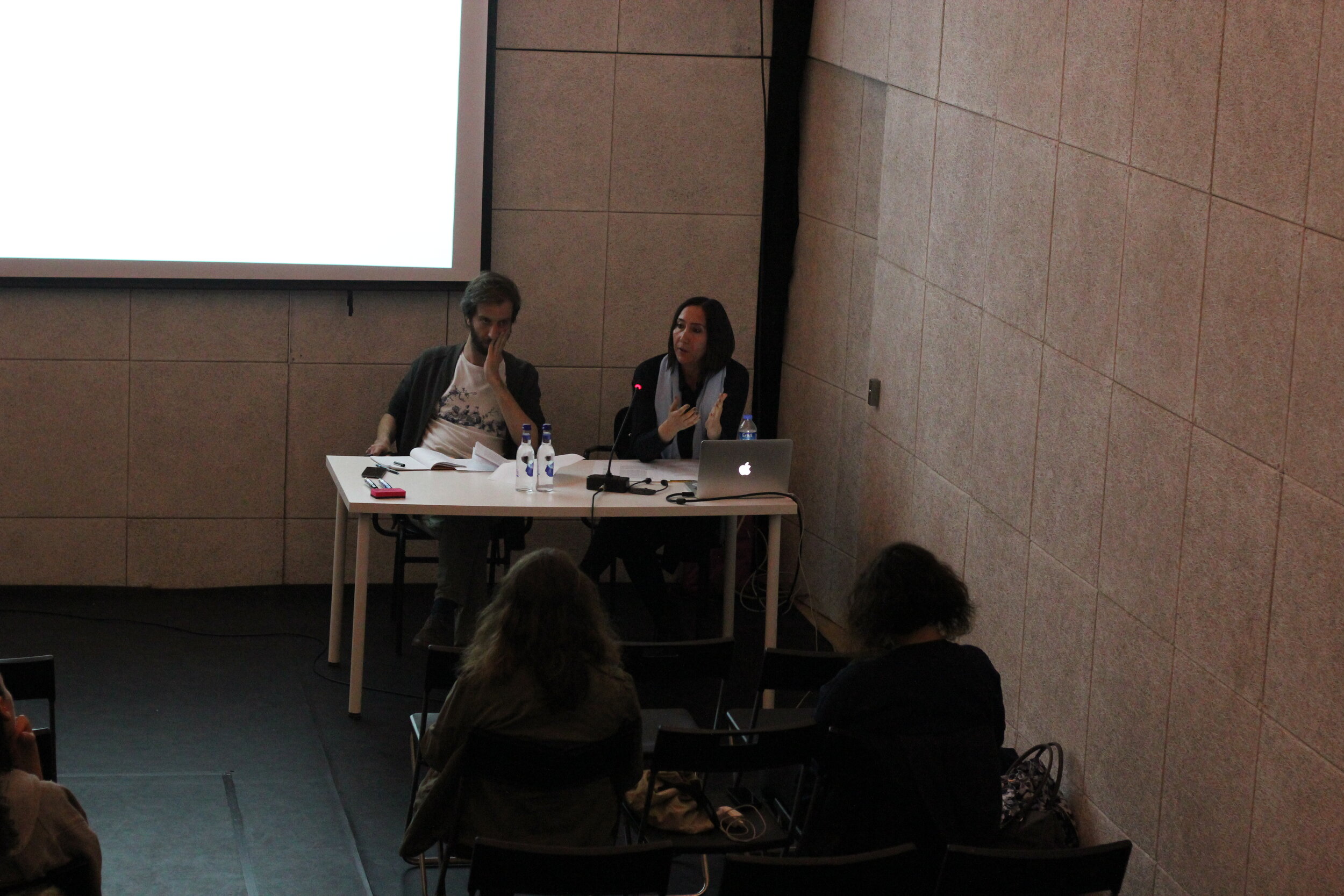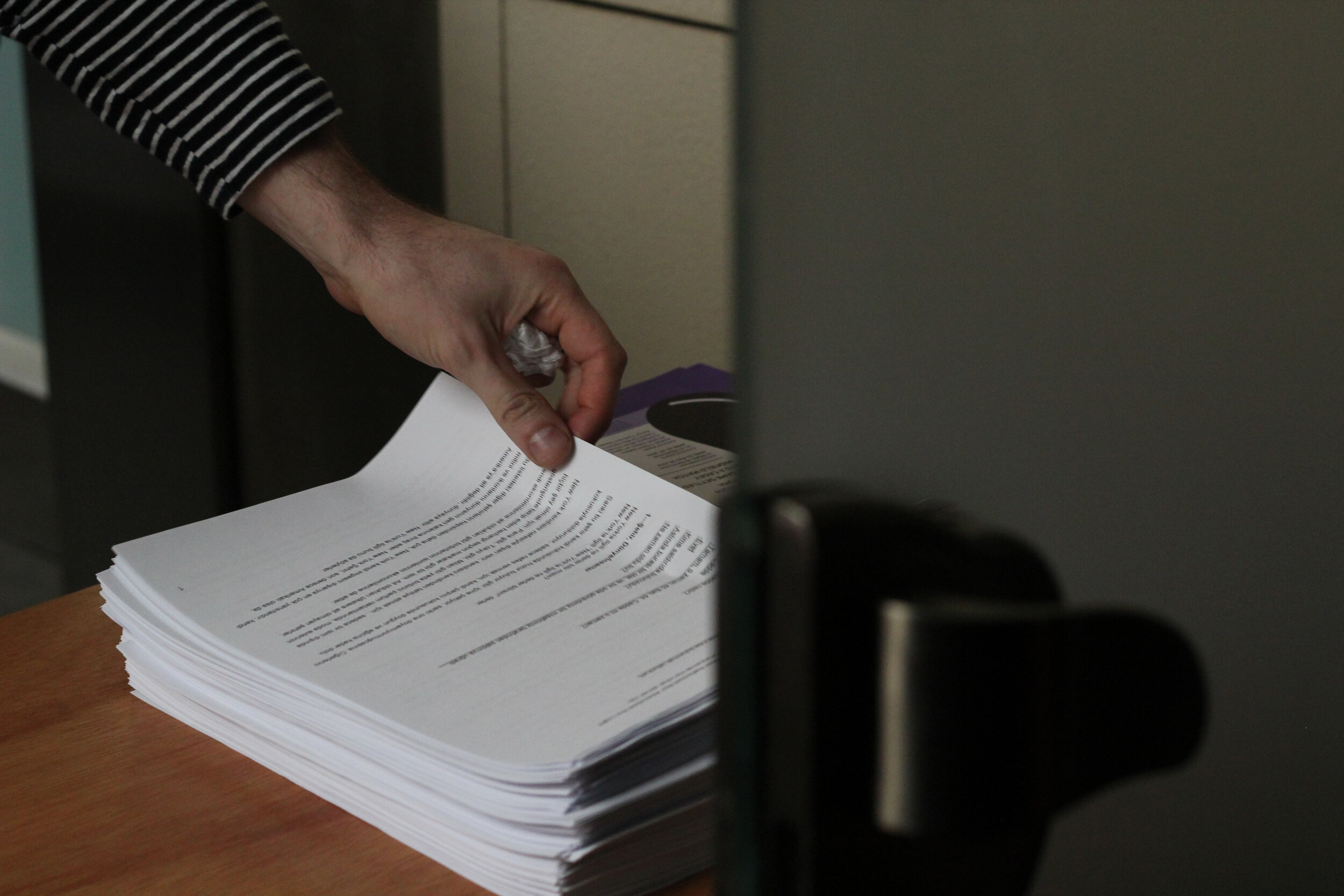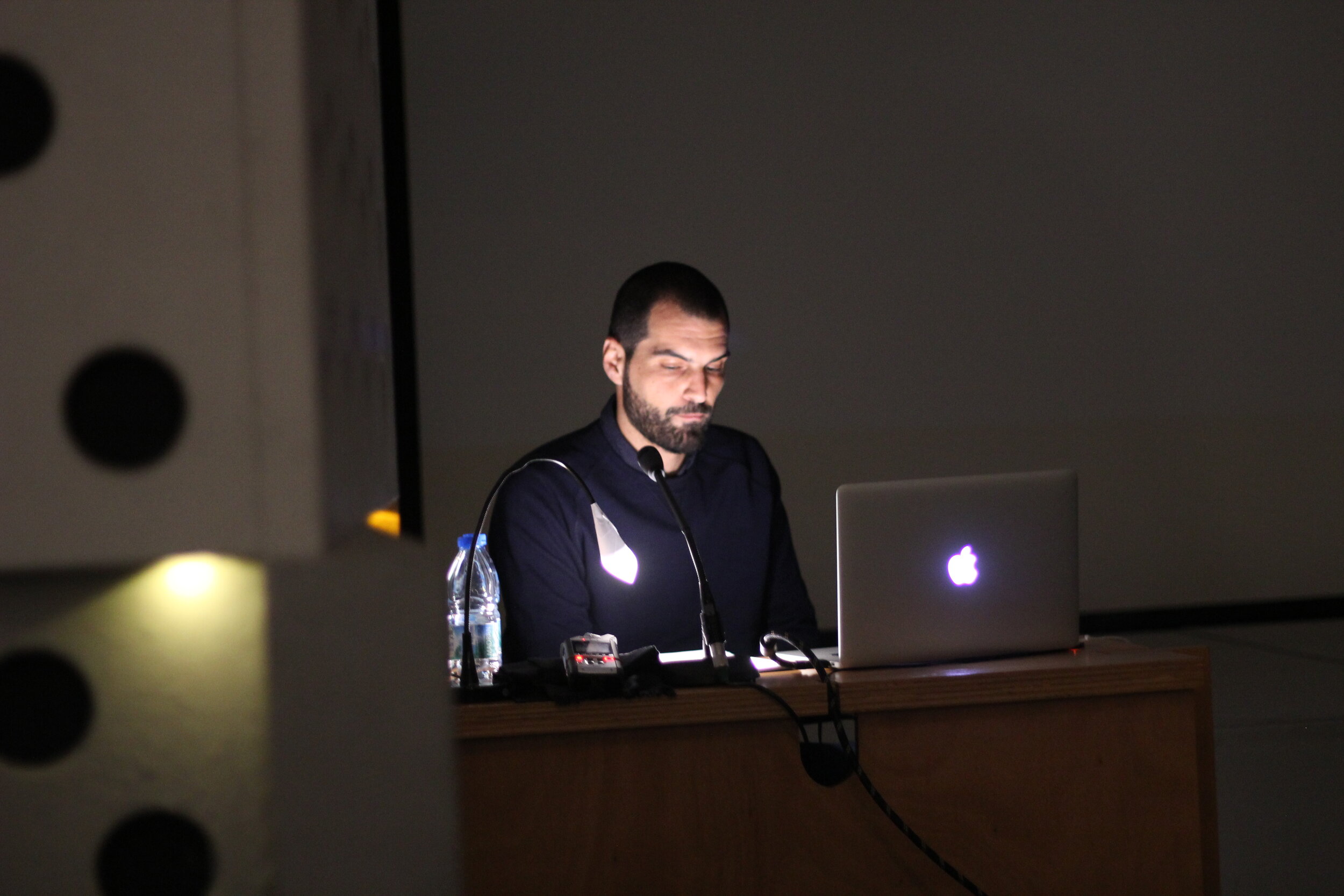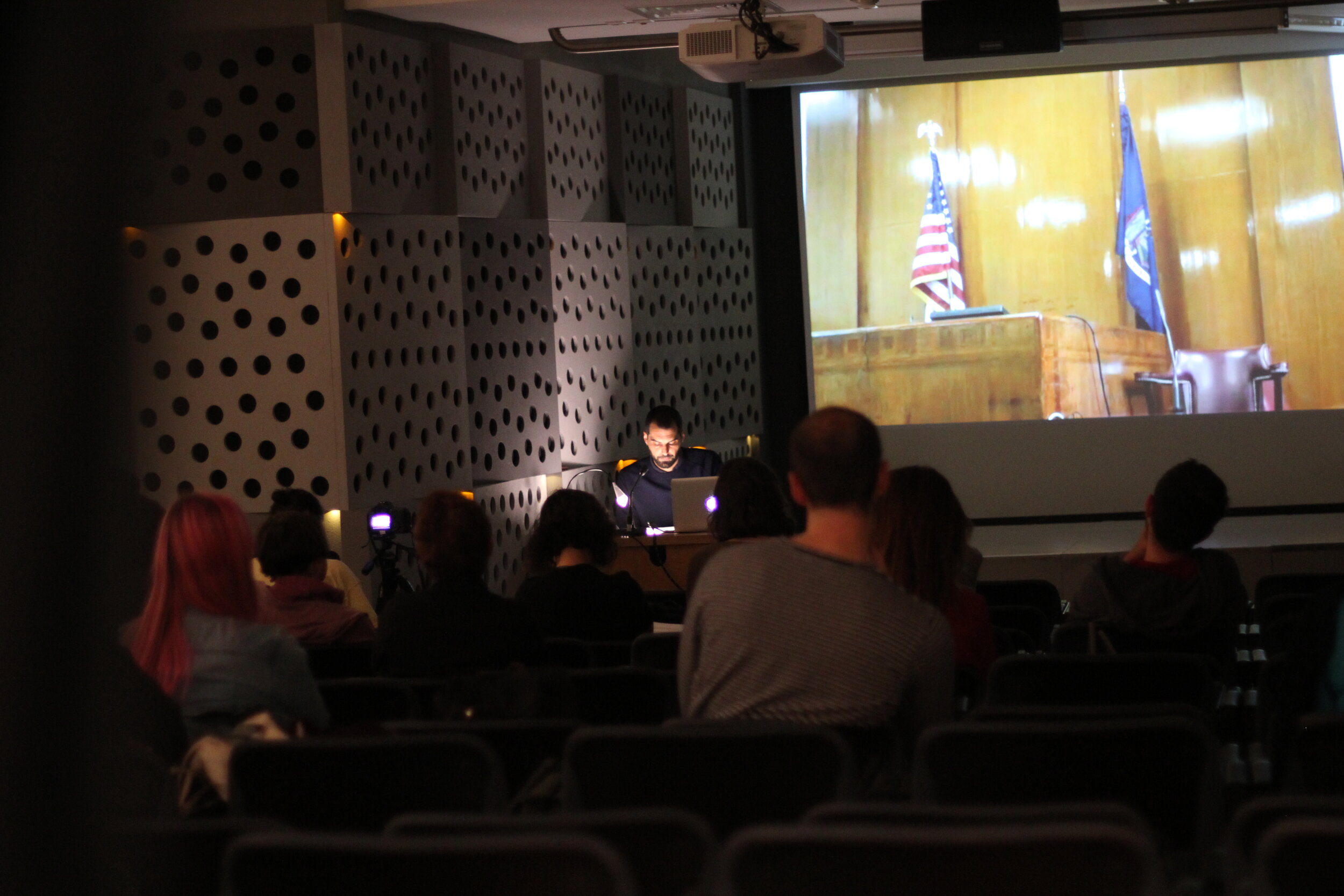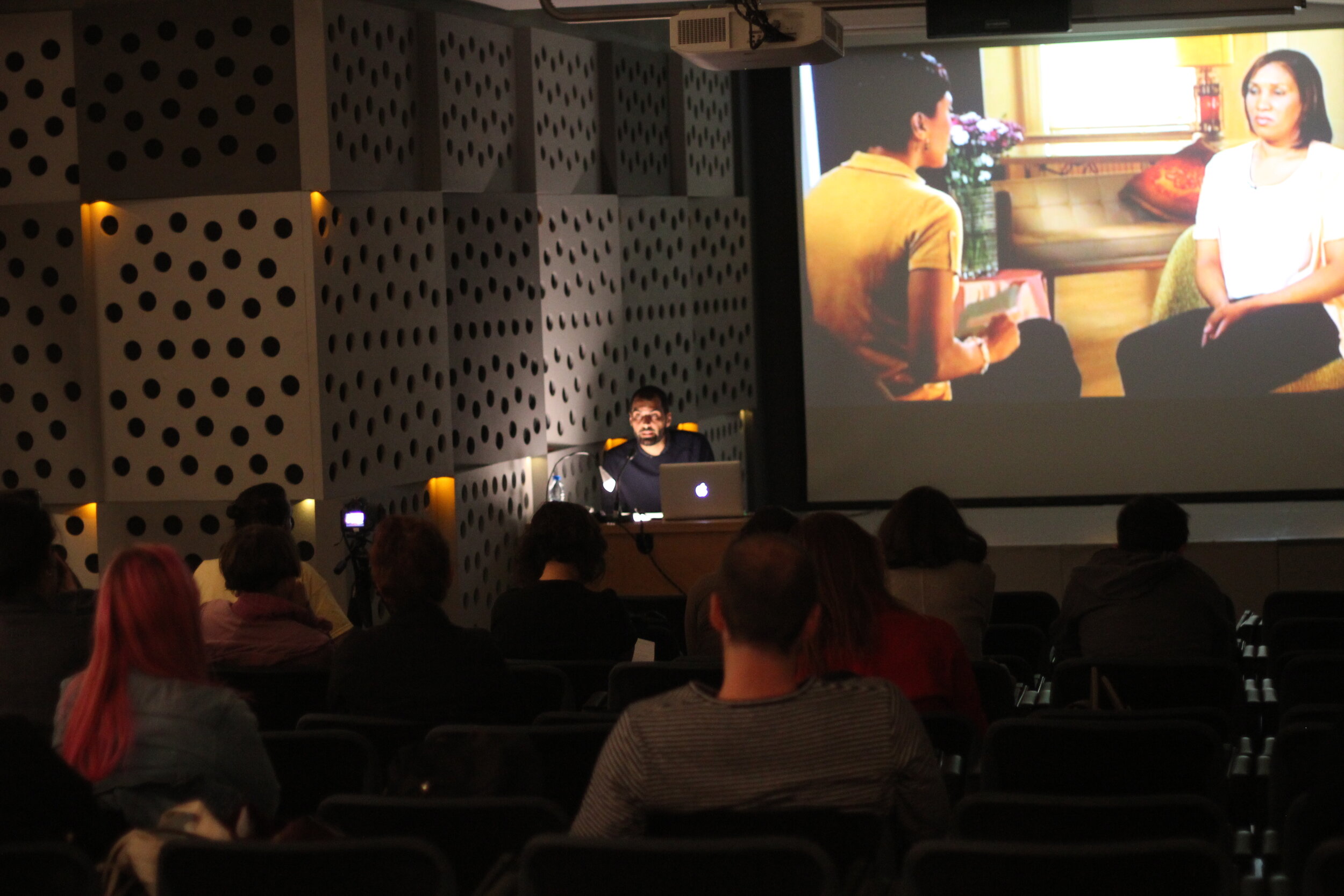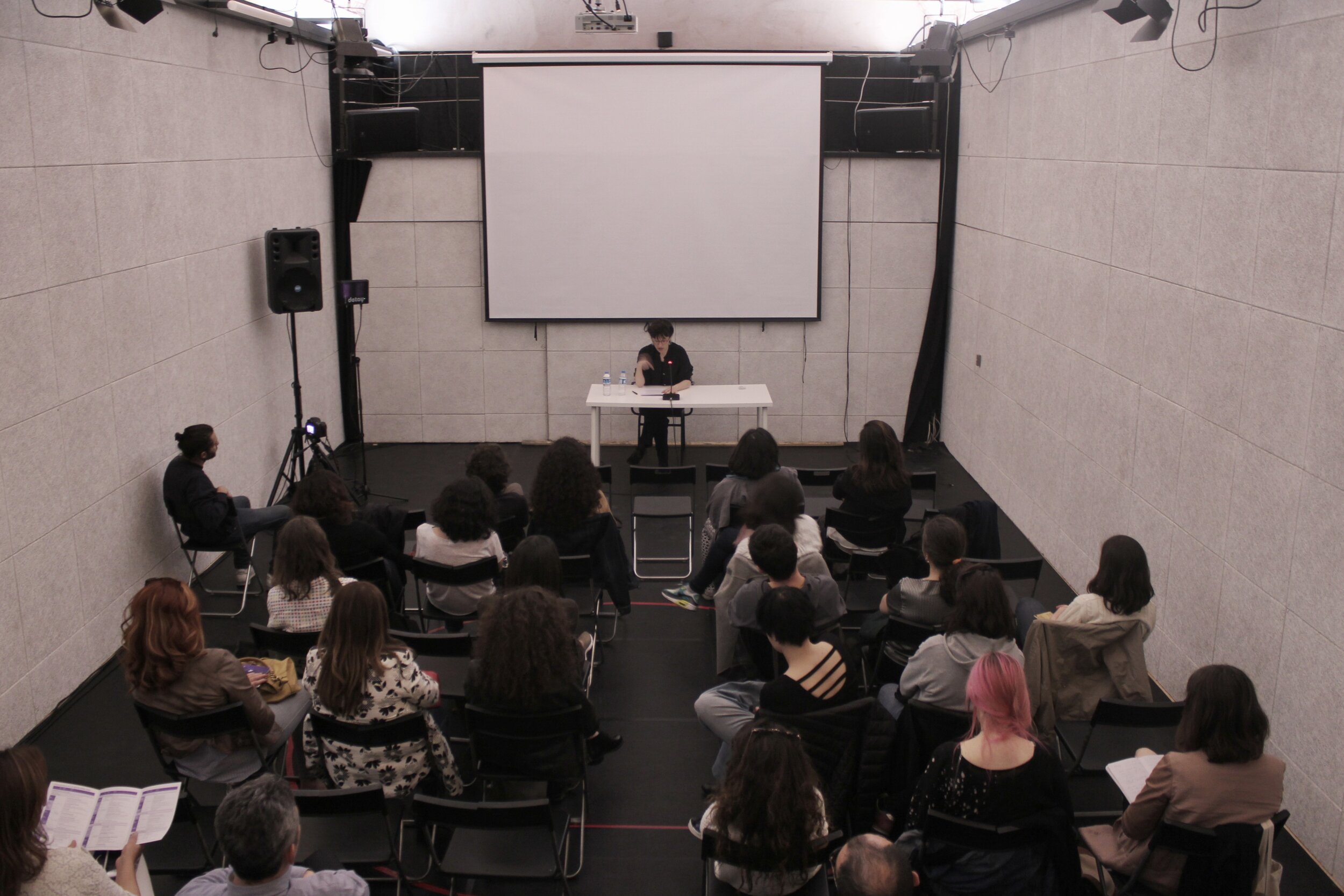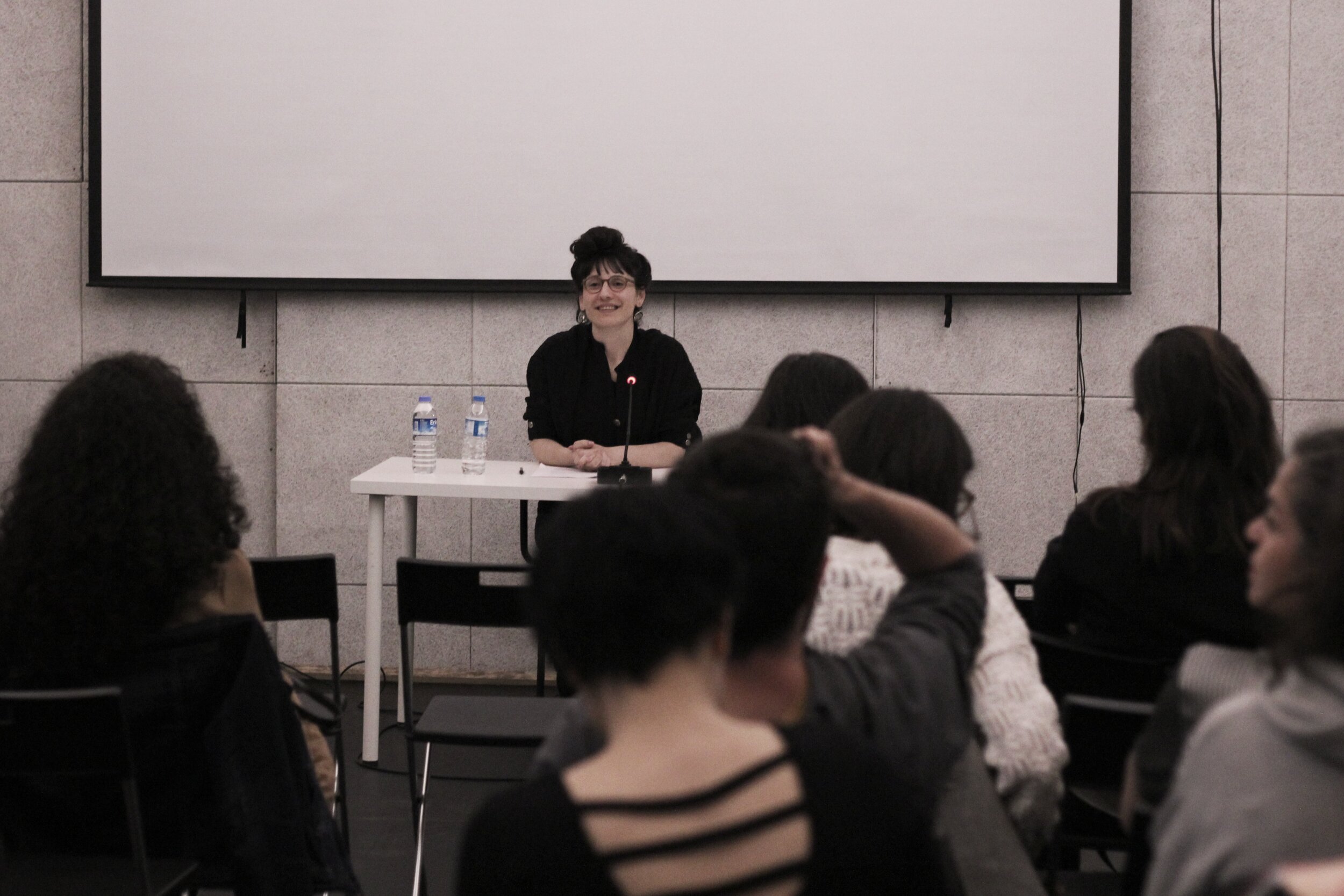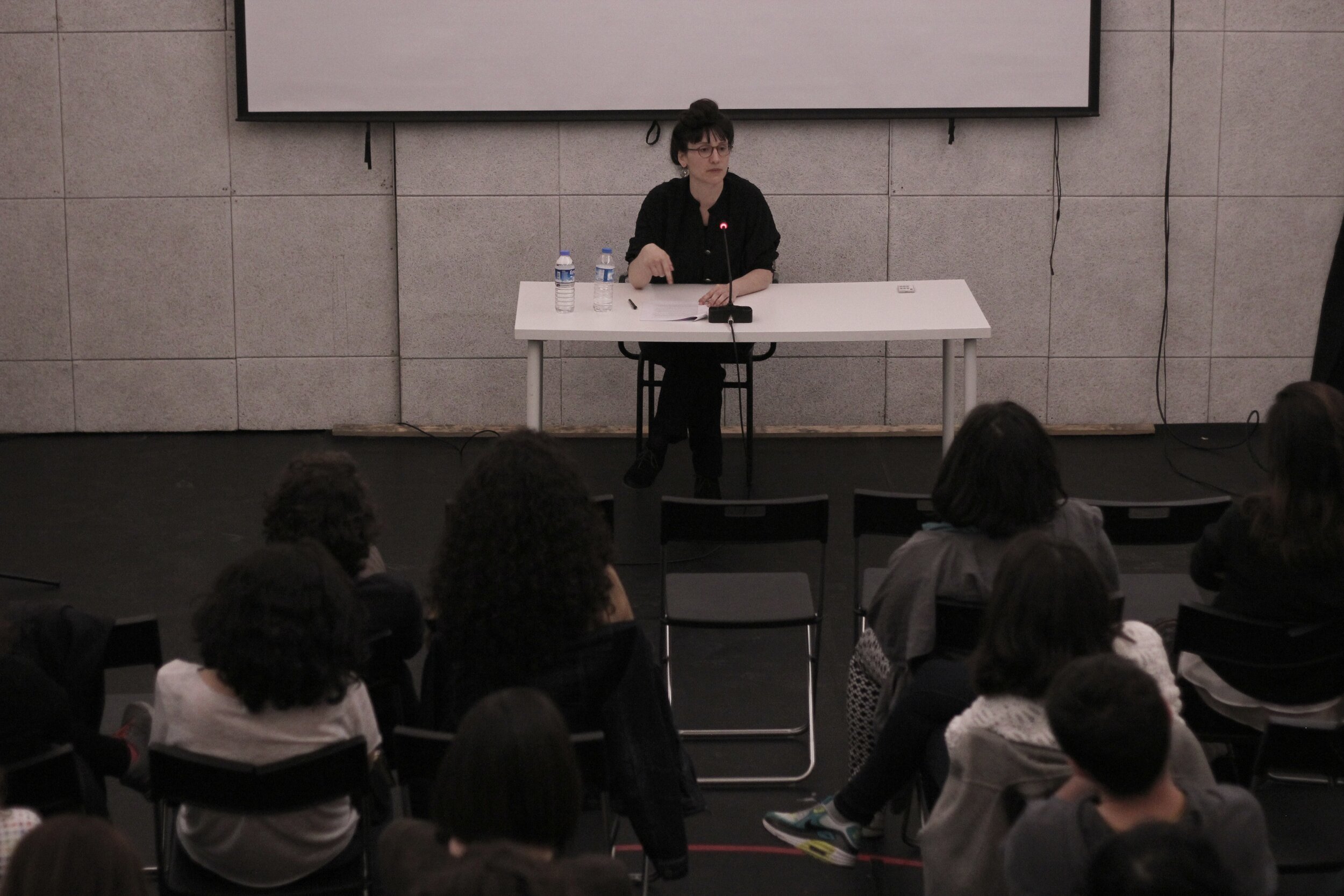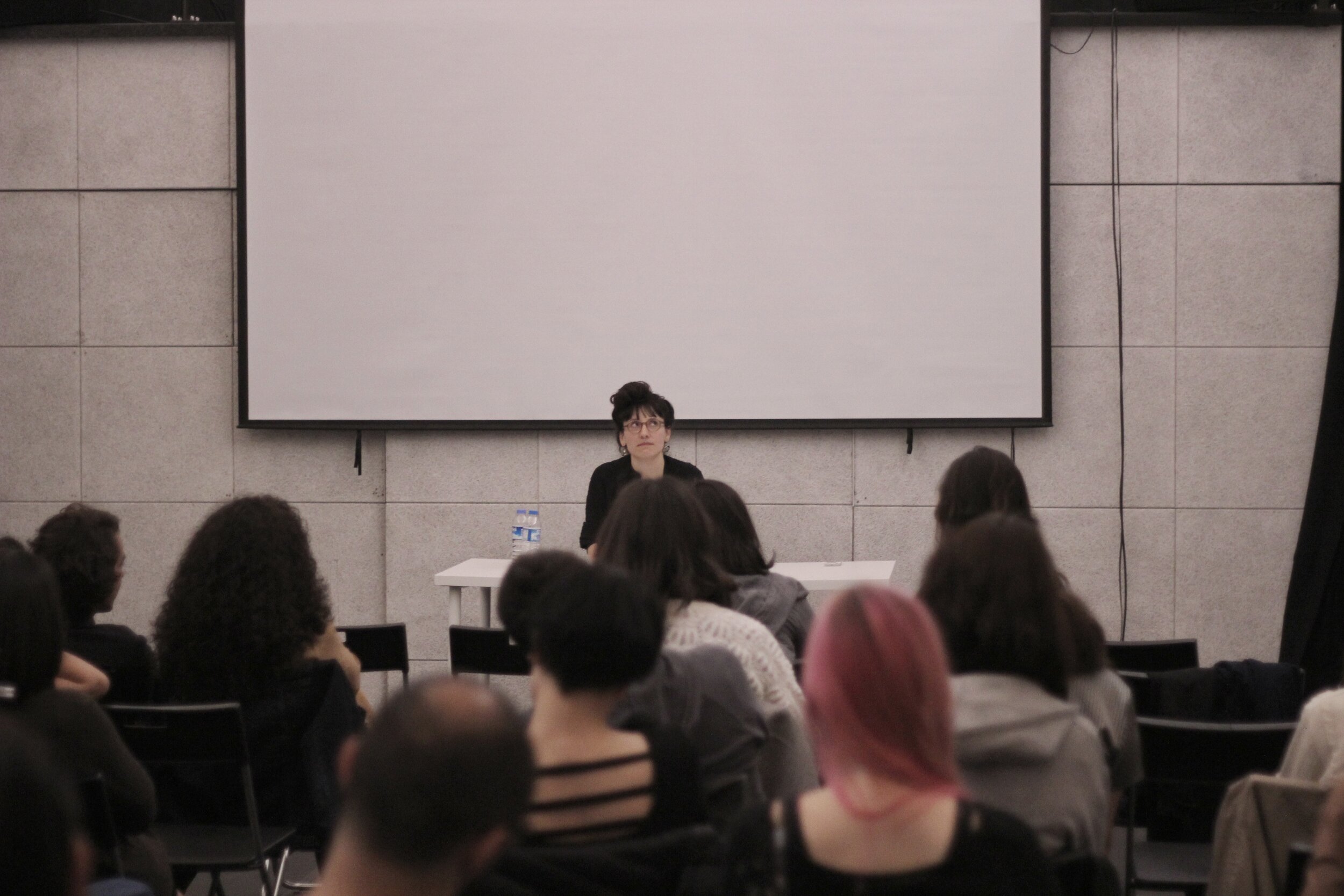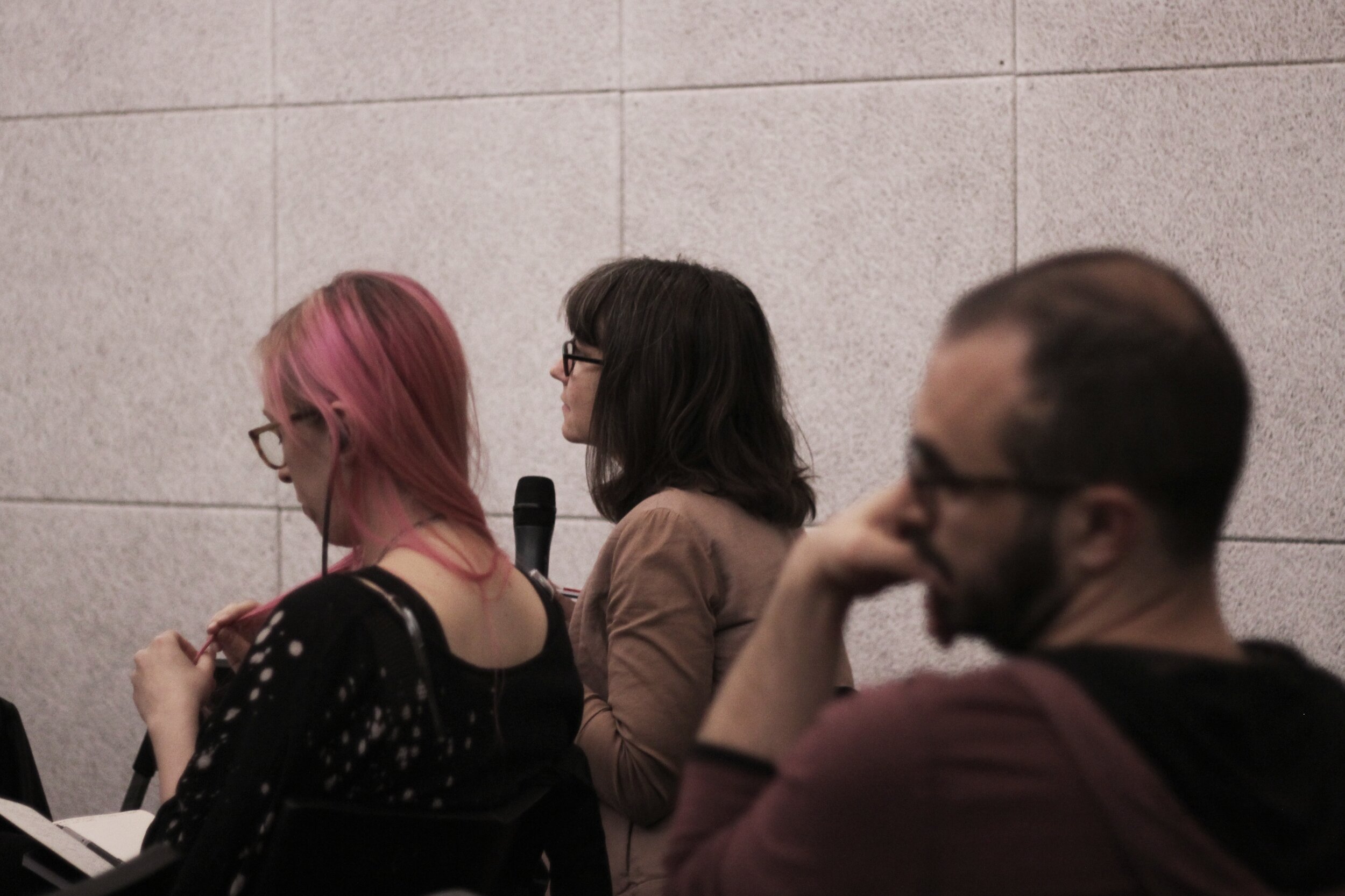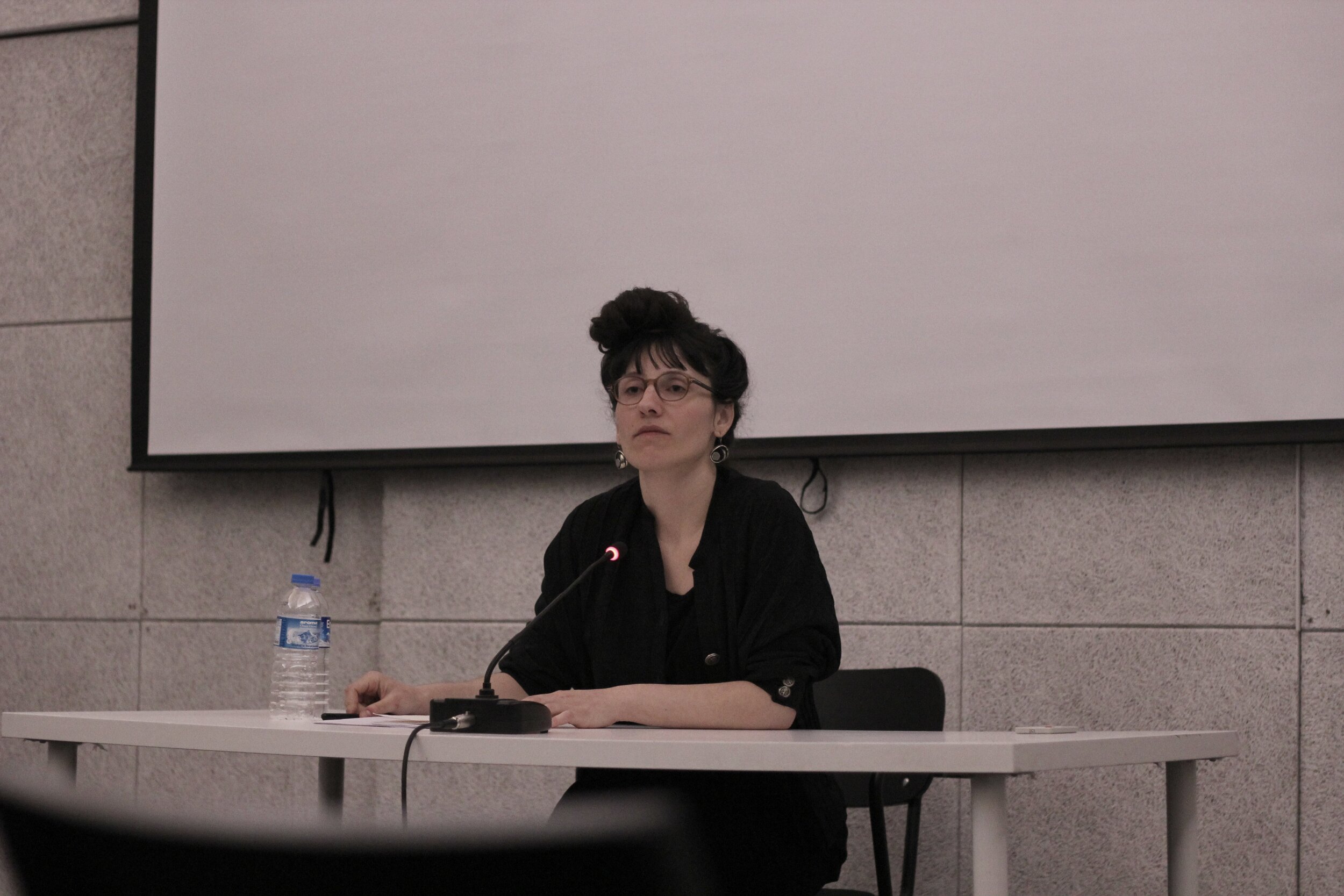T’ai Smith
Duchamp’s Model:The Readymade before the Readymade
Talk
With the proliferation of readymade clothing in New York department stores by the end of the 19th century, fashion came to exemplify the capitalist mode. Seemingly obsessed with this economic development, Marcel Duchamp explored the logic of fluctuation, standardisation, and branding in several of his works. Duchamp’s diagrammatic model, Molly Nesbit and David Joselit have suggested, was ‘the language of industry’. We might further call Stoppages a sartorial diagram; an algorithm that could be used to manage the production and marketing of readymade garments and readymade artworks alike. This talk aims to redress Duchamp’s readymade model in light of a history of fashion capitalism at the turn of the last century. Further, the readymade is not just a conceptual model used to designate banal objects as ‘art’; rather, it is a distinct method by which the brand of the artist can be framed.
Zeynep Oktay (Moderated by Hazal Halavut)
What are Religious Studies? What type of knowledge do they produce?
Talk
What are Religious Studies? What are their relationship to religiosity and secularism? How is it different from Theology? In our world today, thinking about religion has become crucial for almost all individuals in society. Yet in Turkey, we are far from a scientific perspective which would serve as the basis for such thought processes. This is because the production of knowledge on religion is confined to the sphere of Theology. As an area of intersection between the social sciences and humanities, Religious Studies gives us the opportunity to speak about religion in a manner which is not biased and exclusionist. To many pious people, the idea of religion being the object of secular knowledge may sound radical. It should thus be a matter of life and death for scholars of Religious Studies to explain that this very notion is what opens the way for radicalization.
Nazile Kalaycı (Moderated by İlksen Mavituna)
On Animals
Talk
The ‘animal issue’ today is approached from two points of view which at times come close and at others move radically away from each other: ‘animal rights’ and ‘animal liberation’. The importance of reassigning the arrangement of animals’ living conditions from arbitrary human disposal to law is indubitable; however, none of the given rights prevent animal use in laboratories or industrial farms. The conditions are relatively rearranged but the speciesist attitude towards animals stands. We need to transform our perception of and interactions with animals. To do this the humanist at- titude has to be bracketed, the epistemological and structuralist separations that incarcerate animals into species jails have to be problematised in order to allow for fairer, more equal practices different from domination and hier- archy. This talk will discuss the issue of animal liberation in the context of the relation of slavery to body that Spinoza establishes in Ethics and through contemporary thinkers like Deleuze, Guattari, Derrida and Agamben.
Haig Aivazian
To Neither Confirm Nor Deny that the Matter Neither Reflected Nor Absorbed Light
Lecture
To Neither Confirm Nor Deny that the Matter Neither Reflected Nor Absorbed Light revisits ex-IMF chief Dominique Strauss-Kahn’s sexual assault of a hotel maid in Manhattan in 2011. The mesmerizingly slow lecture looks at the stories, dynamics and narratives to have emerged from the visualizations of the so-called ‘Sofitel Affair’. Centered around an assault in a Manhattan hotel suite, where the only witness is also the survivor of the attack, the work seeks to ultimately present a strange framework, through which an immaterial global financial economy and corporeal violence become inextricably linked.
Suna Kafadar
Two Rivers in One Bed: Lettuce Flutter, the Breast of Aphrodite and Recollective Appetite
Lecture
Where do we begin? In the body of the earth, water, fruits and that which is not imperious but penetrable. In the oblivion and what has been blanked. The mechanism of which feeds on imposed recollection, brought into line. But, the body has corners, in which it stores the world. One day, when we are so confused and fragmented in forgetfulness, it thrusts out from everywhere. Let us imagine that day, and what we will say about the self. With the aid of poetry, we will talk about the warring appetites and the distracting forces of the coarse and the vulgar.


